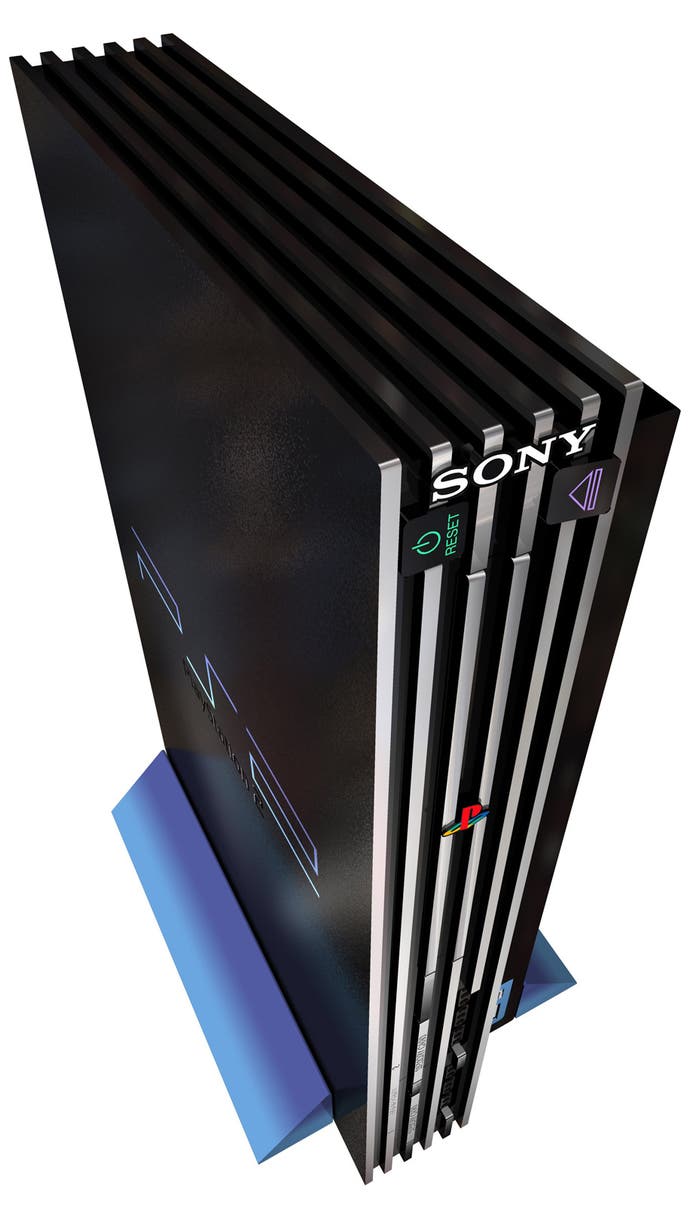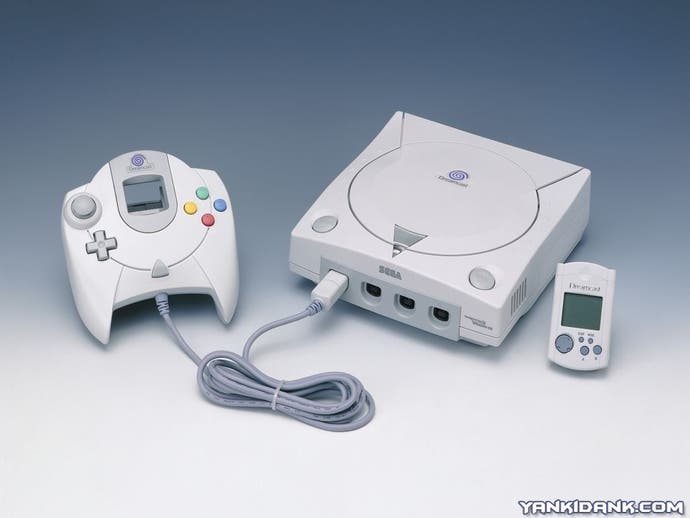PlayStation - The total history
Part 3: The PS2 years and the build-up to the PS3.
Catch up with the first and second parts of this series on the history of PlayStation.
With such an unassailable command of the market, nobody really expected the PlayStation 2 to fail, did they? Well, strange as it may sound, yes, some people did. For a start, no other company had dominated the market across successive generations of hardware. Then there were the hardware shortages that hampered the console's launch in every territory - compounded in the UK when it got caught up in media hype about ‘Rip-off Britain'. And then there were the disappointing post-launch titles. Remember The Bouncer? Remember how it was going to represent a stunning new direction for emotion in games? That was quickly forgotten when the PS2 became the fastest selling console in history, with over 105 million units shipped worldwide by March 31, 2006.
Sony officially unveiled plans for its next generation PlayStation in March 1999. Like its predecessor, it was an impressive piece of kit, featuring, at its heart, the Emotion Engine, a chip optimised for fast graphics processing. It also boasted DVD-playback, backward-compatibility, and a dramatically different case design. It also extended the analogue functionality of the DualShock controller to the face buttons. And it was important to Sony: at the time, the original PlayStation accounted for 40% of the company's revenues.
But the months leading up to the console's launch weren't especially happy ones for Sony. Early previews of games weren't particularly well-received, and development insiders suggested that the system was difficult to code for. It was enough to for some people to have legitimate doubts about Sony's ability to dominate the market a second time.

A special event in 2000 showcased the initial batch of games, but many titles had started life intended for the original PlayStation and it showed, with early highlights restricted to the likes of Dark Cloud, Gran Turismo 2000 (which was eventually cancelled), and Fantavision (which hardly looked like it required the might of the Emotion Engine). Shortly after the event, rumours began to emerge about the difficulty of programming the device, with Capcom's Shinji Mikami pointing to the lack of development tools, and his colleague Keiji Inafune arguing that the machine was so powerful that it was difficult to budget or plan for the new techniques that would be required to program it.
A nine-minute trailer of Metal Gear Solid 2 at E3 later that year offered some respite from all the carping. Raindrops splashed off characters' clothes, bottles shattered and gun casings scattered, to a bombastic Hollywood musical score. More good news emerged at an LA sound stage, where Sony announced a launch date of Oct 26, and a price of $299, just as it had for the original PlayStation. It would launch with 20 games, as the original PS hadn't. But again, the games on the show floor didn't impress, especially as the Dreamcast was just then entering a creativley rich period, producing games like Seaman, Shenmue, and Jet Set Radio.
But competition from the Dreamcast ultimately proved short-lived. Although Sega's next-gen console launched to success in 1998, it was hampered by manufacturing shortages, an initial shortage of standout titles, and continued speculation about the PlayStation 2. The real nail in its coffin though, was the fact that Sega had financially exhausted itself by propping up the Sega Saturn. At the start of 2001, Sega issued a press release stating the discontinuation of DC. It was the victim of the PS2's success, but both companies would eventually benefit from Sega's new multiplatform development, thanks to groundbreaking titlessuch as Rez and Virtua Fighter 4.

Another threat that would emerge was Microsoft's Xbox, announced by Bill Gates himself at GDC in 2000, shortly after the launch of the PlayStation 2. Lorne Lanning even made a high profile switch to Xbox, arguing that he couldn't do justice to Munch's Oddysee using Sony's hardware. But eventually Microsoft's console would also cease to threaten sales of the PlayStation 2, arriving on the market well after Sony had established a substantial installed base, and at too high a price to trouble Sony.
Indeed, in spite of the pre-launch teething troubles, the biggest threat to launch-day sales of the PS2 was an inadequate supply of consoles. When it launched in Japan on Sunday March 4, in 2000 the scenes of hysteria that ensued contrasted with the relatively sensible launch of the original PlayStation. 600,000 consoles sold out and many punters found themselves empty-handed - one Japanese gamer even threw himself off a roof in Akihabara after failing to get hold of one. Again though, it wasn't all good news for Sony: software sales were low, apparently because people were buying it to use as a cheap DVD player, and reports of faulty memory cards caused Sony's stock price to falter in the days following the launch.
The US launch, on October 26 was also rather mixed: the initial shipment of consoles was revised downwards at the last minute, from 1 million to 500,000, but there were many more games available at launch. EA certainly did well out of it, selling 40,000 copies of Madden before the console even went on sale, as did Rockstar, whose Midnight Club and Smuggler's Run were both prominent at launch (In spite of the muted reception to the console, Sam Houser perceptively noted that "Anyone thinking this isn't a completely new era for the games business is smoking crack.").
Finally the console was launched in Europe on November 24, 2000. But again, trouble continued to dog Sony, from David Lynch discovering that his ‘Third Place' TV adverts had been screened in black and white (and not colour as he'd intended), to TV show Watchdog targeting the PS2 as part of a ‘Rip-off Britain' expose because of its £300 price point. There were even allegations in the media that Sony had manufactured a stock shortage to drive up demand for the console. Certainly it wasn't a popular move to restrict European preorder allocations to just 80,000 units, particularly after Sony had earlier announced that Europe was the biggest market for the PlayStation (with 28m units compared to 27m in US and 17m in Japan).
